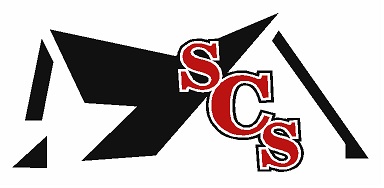Statewide Claim Services LLC
Habit 1: Communication
Insurance claims adjusters ought to possess excellent people skills. An insurance adjuster will deal with all manner of people in every frame of mind – from happy and grateful to angry and suspicious. As representatives of insurance companies, claims adjusters are often the only point of contact between the insurer and insured. Customer service with an emphasis on cordial, patient, and professional communication should always be strived for.
Habit 2: Time Management
Wasted time and stress are twin enemies of an insurance adjuster – particularly an independent adjuster handling catastrophic claims. Effective time-management will minimize stress and maximize profits. It is not uncommon for insurance adjusters to be handed stacks of claims numbering in the hundreds. And in a catastrophic situation, each claimant wants the adjuster there yesterday. Managing expectations, multi-tasking, and using time wisely are essential to surviving the insurance claims “storm”.
Habit 3: Computer Proficiency
The days of hand-writing estimates are over and nearly every major insurance carrier now requires that claims estimates be delivered electronically. Becoming proficient in general computer usage will dramatically elevate the ability of an insurance adjuster to close claims quickly. Those who struggle with typing, using a mouse, or navigating through a Windows-based program should strongly consider enrolling in a basic computer skills course before taking on insurance claims.
Habit 4: Integrity
An insurance adjuster, particularly an independent adjuster, has significant freedom and power and therefore responsibility. Temptations to abuse the position (i.e. taking bribes, contractor kickbacks, etc.) exist and a good insurance adjuster should constantly be vigilant in guarding against even the appearance of ethical infractions. Crime may pay in some professions but not in insurance adjusting – an unethical adjuster is an adjuster soon to be out of work.
Great Team, amazing job resolving my claim. Top notch customer service. I will definitely use again in the future.
Ronnie Morin
“John Olle’s professionalism, integrity, technical expertise, customer service, and compassion are beyond reproach. John turned a travesty into a blessing that I will be eternally grateful for. At one point during my Hurricane Michael nightmare a friend referred me to an attorney specializing in battling insurance claims. When I…
James Evans
Habit 5: Insurance Policy Knowledge and Application
Knowing how to read an insurance policy is fundamental to proper insurance claims adjusting. But the real skill is in applying the policies within the context of very specific aspects of a particular insurance claim. Excellence in adjusting is as much art as science – formulas and rules can lead you through the black and white but when grey areas arise an adjuster must rely upon intuition, conscience, and experience – in short, good judgment.
Habit 6: Construction/Engineering Knowledge
Being familiar with the makeup of the property adjusted is obviously essential. If an adjuster doesn’t know what is behind a wall in a house he or she certainly won’t know to account for it in the estimate. The goal of the insurance adjuster is to compensate the homeowner, car owner, or business owner to an extent sufficient to return their property to its pre-damaged condition. Understanding how those properties are constructed, from foundation to roof, is indispensable in coming to a fair and accurate claim settlement amount.
Habit 7: Innovation and the Will to Succeed
Sometimes claims adjusters find themselves confronted with seemingly impossible situations. Difficulties ranging from language barriers, unresponsive claimants, impassable roads, and software bugs can make an insurance adjuster long for greener pastures. In catastrophic events, this is particularly true. Some folks take their footballs and go home, and some muddle through an event not to return the next year. But others rise to the challenge, facing problems with innovation and the will to succeed. Being proactive and having perseverance are hallmarks of the highly effective adjuster.




